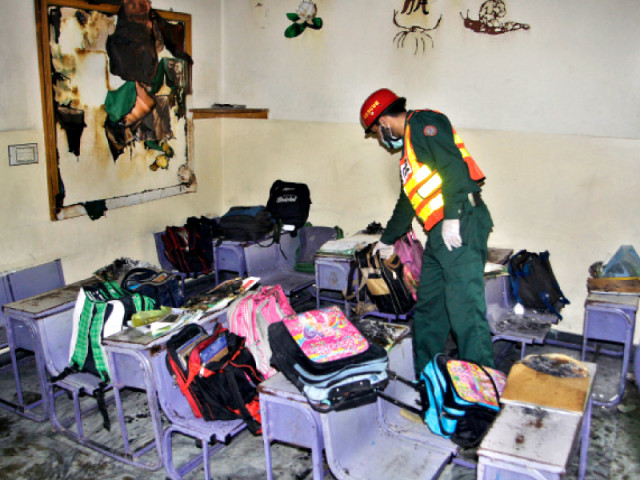School’s safety
School staff in general are not trained to look out for hazards or deal with them.

A Rescue 1122 fire fighter inspects damage to the classroom. PHOTO: SHAFIQ MALIK/EXPRESS
The issue here is not of a single incident but of the wider problem of safety at schools. Just as is the case in public buildings, including shopping plazas, factories, other workplaces, hotels and even hospitals, contingencies for fire safety exist in few places. Staff are not trained to look out for hazards or deal with them. In other incidents, the lack of escape routes has led to deaths.
Especially in schools where administrations are responsible for the welfare and safety of children entrusted to them, we need to do more to ensure regulations are put in place and followed. It is unclear if sufficient rules exist at present. The members of the school’s management have, in this case, been arrested for negligence — but this is not enough to prevent other similar accidents which could so easily lead to still worse suffering and a high toll on life. We need to act now to prevent such a disaster before it occurs, given that prevention, after all, is always better than dealing with the aftermath of a grave mishap.
Published in The Express Tribune, February 25th, 2013.















COMMENTS
Comments are moderated and generally will be posted if they are on-topic and not abusive.
For more information, please see our Comments FAQ